The Democratic Party‘s leadership vacuum has left many wondering who can unify its ranks. With no clear leader stepping forward, some are hoping former President Barack Obama can fill the void.
However, it remains uncertain whether Obama is willing to take on that responsibility, whether his voice still carries the weight it once did, or if it’s time to hand over the reins for good.
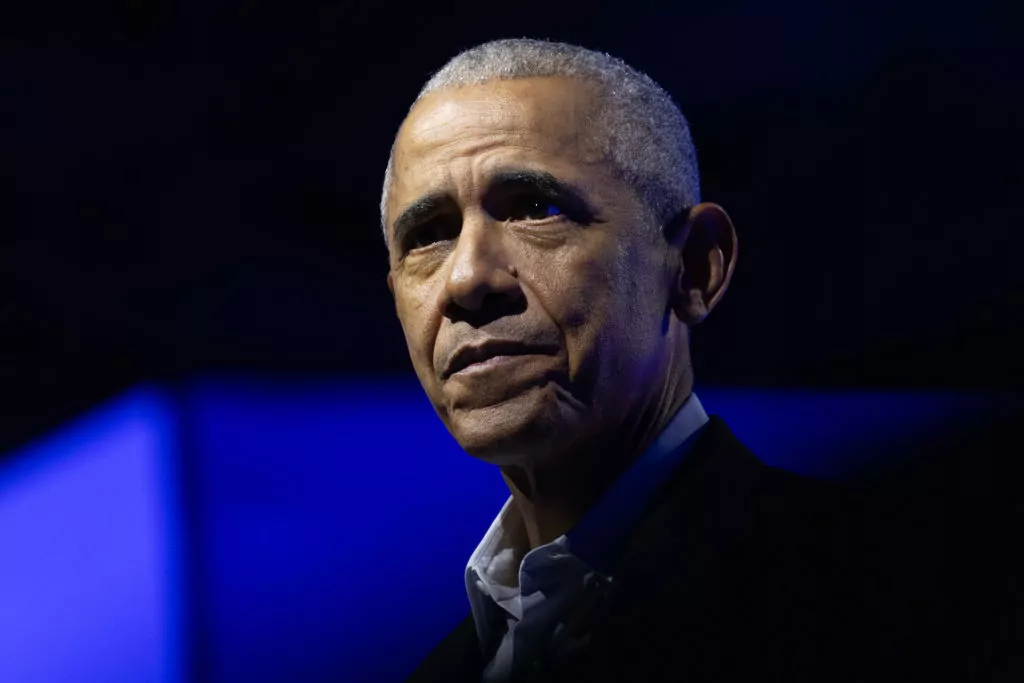
“The Audacity of Hope” leader has largely remained on the sidelines since President Donald Trump took office in January, opting for the calm of semiretirement over a return to the political front lines.
In March, Obama posted his annual NCAA basketball bracket, celebrated the anniversary of the Affordable Care Act, and wished his wife a happy 61st birthday. He also sent out some music and movie recommendations, reposted a promotional spot for a documentary his production company is making on Thunderbirds, and highlighted a few articles about artificial intelligence.
All in all, pretty tame stuff.
Protecting his legacy
More recently, Obama appeared before a civic group in Hartford, Connecticut, and offered a winding explanation about the threats facing the country and democracy as a whole. He said the United States is “dangerously close” to allowing its government officials to act in a way “consistent with autocracies,” but did not mention Trump directly. He also discussed the erosion of traditional U.S. values such as the rule of law, freedom of the press, and the right to protest.
“If you follow regularly what is said by those who are in charge of the federal government right now, there is a weak commitment to what we understood — and not just in my generation, at least since World War II — our understanding of how a liberal democracy is supposed to work,” Obama said.
Obama’s careful comments left many wondering why he didn’t name-check Trump, who has been taking shots at him and his political achievements as well as testing the limits of presidential power.
“There are many grandmas and Rachel Maddow viewers who have been more vocal in this moment than Barack Obama has,” Adam Green, co-founder of the Progressive Change Institute, told The Atlantic. “It’s heartbreaking to see him sacrificing that megaphone when nobody else quite has it.”
Those close to Obama said he doesn’t want to overshadow the next generation of Democratic superstars but acknowledge that a new national sensation has yet to emerge.
“Too many hopefuls are chasing the idea of being ‘the next Obama’ rather than leading with vision and authenticity, speaking to the hearts of the American public,” Democratic strategist Alyssa Batchelor-Causey told the Washington Examiner. “Democrats do not need a replica; they need a successor. Someone who can build upon Obama’s legacy while bridging the growing divide between progressives and the party establishment and recognizing the needs of the country at this very moment.”
Party popularity at record lows
For better or worse, Obama has remained the most popular Democrat in the country despite it being a historically unpopular time for his party.
A Quinnipiac University poll released in June showed approval for Democrats in Congress at just 21% — the lowest level since 2009. A separate CNN/SSRS poll put the party’s favorability at 29%, marking a record low not seen since 1992. The bleak numbers have sparked concern among Democrats who worry they may signal more trouble ahead.
Amid sinking approval ratings, the Democratic National Committee is grappling with mounting challenges under its chairman, Ken Martin. Tensions in the party have intensified partly due to former Vice Chairman David Hogg’s push to back primary challengers against incumbent Democrats. A June 19 Reuters/Ipsos poll found that 62% of self-identified Democrats believe the party should replace its current leaders.
At the same time, a reported dip in donor funding and shrinking cash reserves in 2025 are raising concerns about the DNC’s ability to sustain any type of electoral momentum.
The party has also been searching for a clear-cut identity that resonates with young and old voters alike.
However, Tuesday’s results in New York City’s Democratic mayoral primary threw a wrench in the plans.
Mamdani win causes split on party messaging
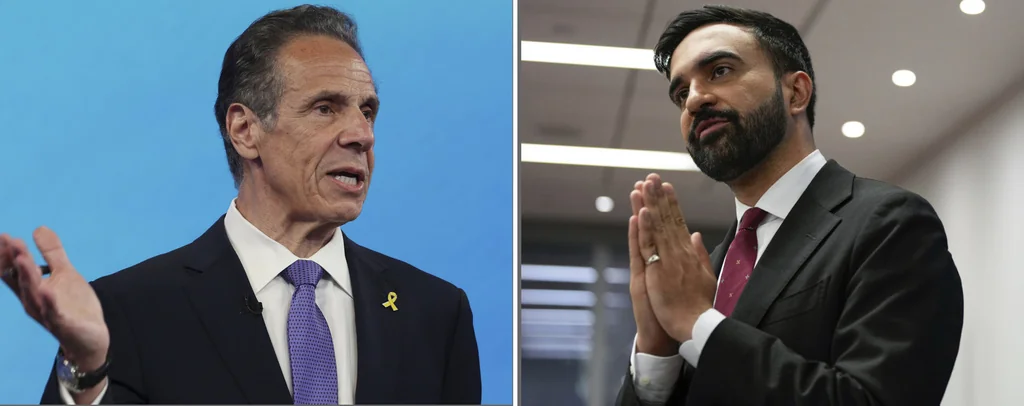
New York State Assemblyman Zohran Mamdani, a far-left Democratic nominee, beat former New York Gov. Andrew Cuomo, a well-funded, familiar face largely seen as a mainstream candidate. Instead of an easy win for Cuomo, voters came out for Mamdani, who embraced a progressive economic agenda and broke with the party’s dominant position on the Middle East. Mamdani’s win reverberated across the nation and left the party, which has been struggling to unify its base, on shaky ground.
Though Mamdani’s win generated excitement among younger voters, his message missed the mark among traditional Democratic voter coalitions.
Democratic leaders want to win back young voters and minority groups, two groups they have struggled and failed to mobilize since Obama was in office. But they also need centrist Democrats and independents, who aren’t on board with left-wing positions, to show up and vote.
Need for change
“Certainly the party needs a new cadre of leaders who can inspire a beaten-down base and offer a vision or competing visions for the future that resonates with Americans who don’t follow politics closely and who decided the 2024 campaign,” Donald Nieman, a professor of history at Binghamton University, told the Washington Examiner. “It would be foolish to think the party can or should move on from Obama. He’s articulate, pithy, and telegenic, and he still gets the blood flowing among most of the Democratic base, centrists, as well as progressives. So Democrats should be happy he’s out there using his star power to call out Trump moves a lot of Americans, not just Democrats, find scary.”
Not everyone agrees.
“Barack Obama, and even Bill Clinton, today have about as much gravitas in influencing or leading tomorrow’s Democratic party as the hood ornament on your father’s old car,” political expert Sam Waltz told the Washington Examiner. “Barack Obama’s moment in the sun has come and gone, and with it his meaningful leverage. The same certainly might be said for even Bill Clinton. Yes, even Hillary Clinton, the party’s 2016 nominee, and, too, most likely even Kamala Harris.”
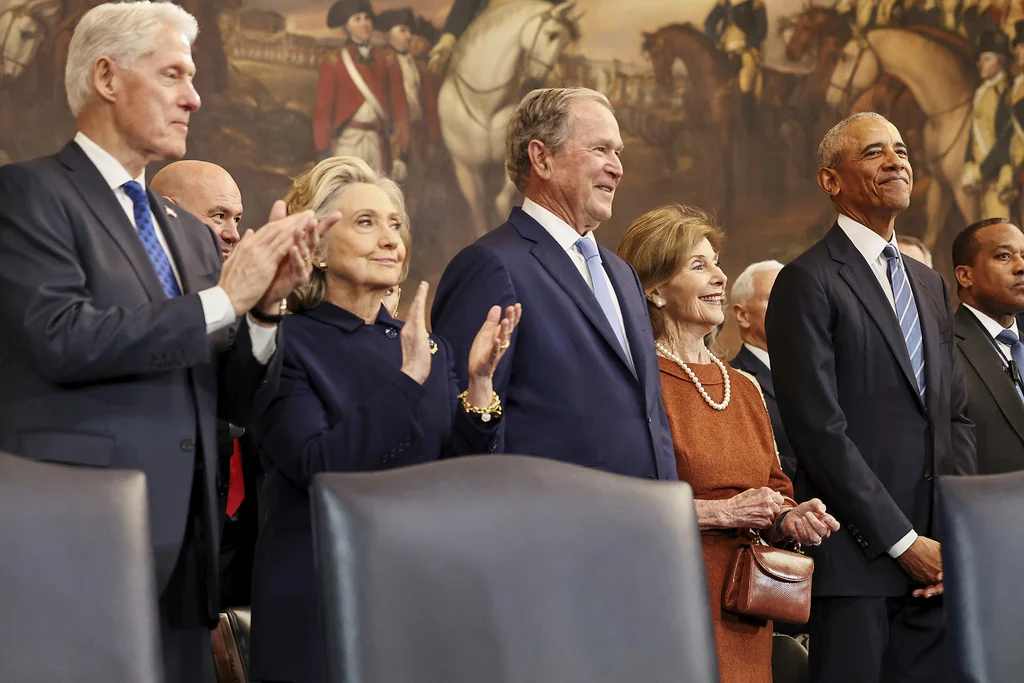
It’s not that they don’t have influence over the party but “it’s a different kind of influence,” Waltz said, adding that Obama and Clinton “still will draw an approving crowd, and of course few would openly criticize either,” but said that’s not what the party needs now.
The phenomenon is not unique to Democrats.
“Neither of the George Bushes could win the nomination today in this Republican Party, much less unite it,” he said.
‘Humpty Dumpty’ moment
For Democrats, Waltz called it a “Humpty Dumpty” moment.
“They’ll never be able to put Humpty back together again in order to leverage [Obama’s] influence,” he said. “It’s time for them to move on, in a way that observes and respects the inevitable changes of political calculus.”
Matt Watkins, a policy analyst and founder of Watkins Public Affairs, believes that while Obama’s “moral clarity, personal discipline, and rhetorical power still resonate,” Americans are no longer living in the conditions that made his presidency possible.
“The current moment is not one of slow erosion, it is one of open collapse,” Watkins told the Washington Examiner. “Leaders like [California Gov.] Gavin Newsom, [Pennsylvania Gov.] Josh Shapiro, and [former Vice President] Kamala Harris bring experience and competence, but they represent an ideological continuation of the Obama-era worldview. That worldview is institutionally loyal, message-disciplined, and rooted in a version of liberalism that feels increasingly disconnected from people’s lived reality. That framework had already failed to stop Trump. Democrats cannot lead with nostalgia. The next leader must bring forward something structurally different, focused on building new systems that actually work for the people left behind.”
Watkins said for many voters, the current Democratic Party feels hollow and abstract.
“When rent is unmanageable, when childcare costs are more than wages cover, when healthcare remains out of reach, the idea of saving the system does not feel urgent. It feels irrelevant,” he said. “Democrats must move from symbolic defense to tangible results.”
Waiting in the wings
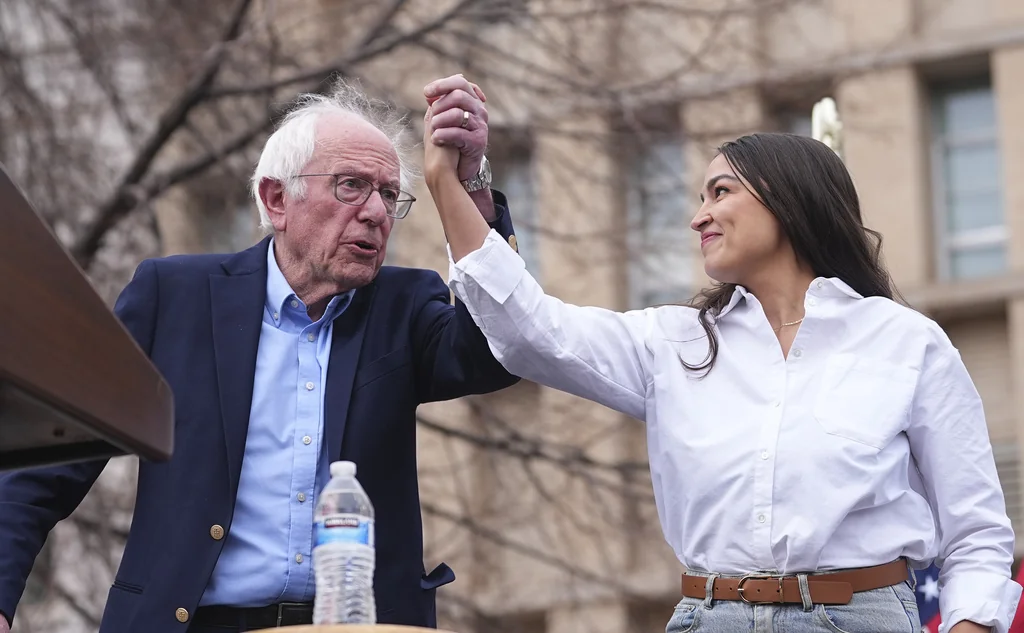
Watkins gave Sen. Bernie Sanders (I-VT) and Rep. Alexandria Ocasio-Cortez (D-NY) credit for changing the political conversation but said the “energy” they have created doesn’t necessarily translate into broad, effective leadership.
“The next Democratic leader must carry the core of progressive ideals — economic dignity, labor rights, climate action — and translate them into language and strategy that feels pragmatic and reachable,” he said. “This is not about watering down values. It is about making the agenda clear, grounded, and broadly accessible. We cannot keep building campaigns that feel righteous to some and alienating to others. The goal is not moral purity. The goal is delivery.”
Nieman also believes it’s time to move on, but warned about doing it haphazardly.
“Democrats shouldn’t be in a hurry to anoint a new savior,” he said. “What the party needs is competition among a half dozen or so people — Josh Shapiro, [New Jersey Sen.] Cory Booker, [New Jersey Rep.] Mikie Sherrill, [Michigan Sen.] Elissa Slotkin — who can develop an authentic voice and vision that energizes Democrats and reaches the middle.”
Political expert Jamie Wright was more blunt in his assessment to the Washington Examiner.
CUOMO CAMP DISMISSES REPORT THAT EX-GOVERNOR IS DROPPING OUT OF NYC MAYORAL RACE
“Democrats need someone who can step into the storm now and not just narrate it,” he said. “Is it time for new leadership? Absolutely. But don’t mistake volume for vision. Gavin Newsom has the media polish and battlefield instincts, but he hasn’t galvanized the base beyond California. Josh Shapiro? Smart, steady, and appealing in the heartland, but still building his national identity.”
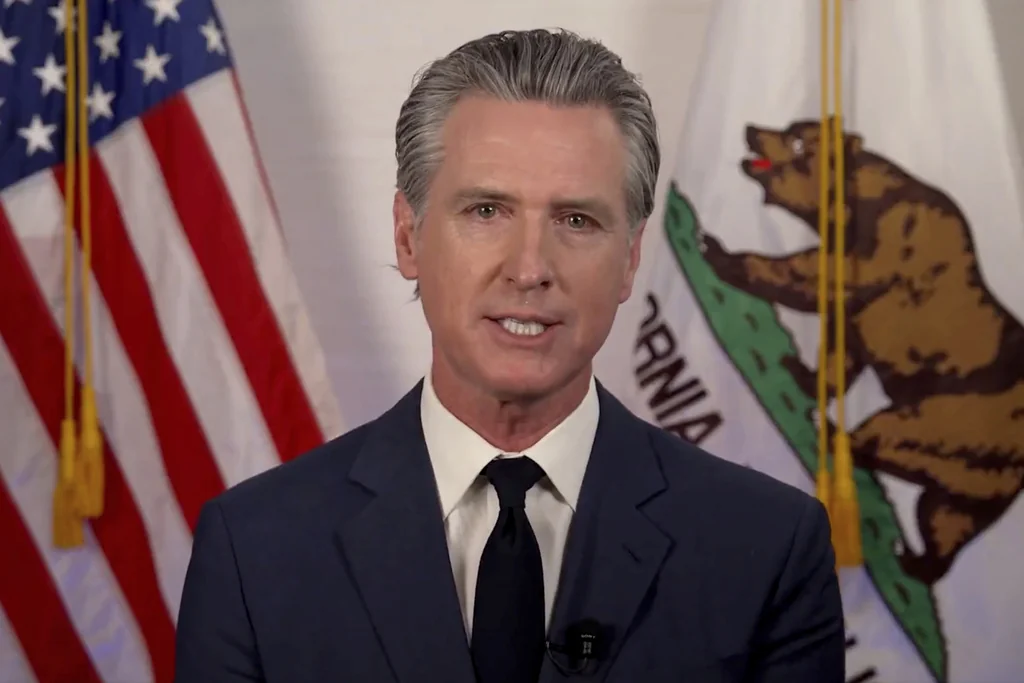
He continued, “Until someone can command the stage the way Obama did with intellect, grace, and guts, he’ll remain the voice people default to. But let’s be clear: a party that keeps looking backward for guidance is a party that risks losing the fight that’s right in front of it.”
















